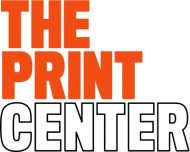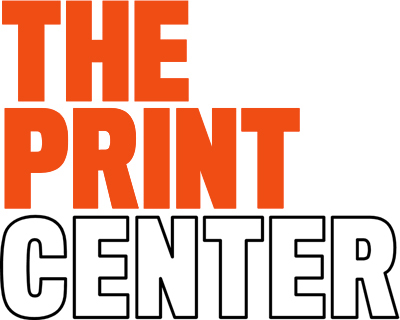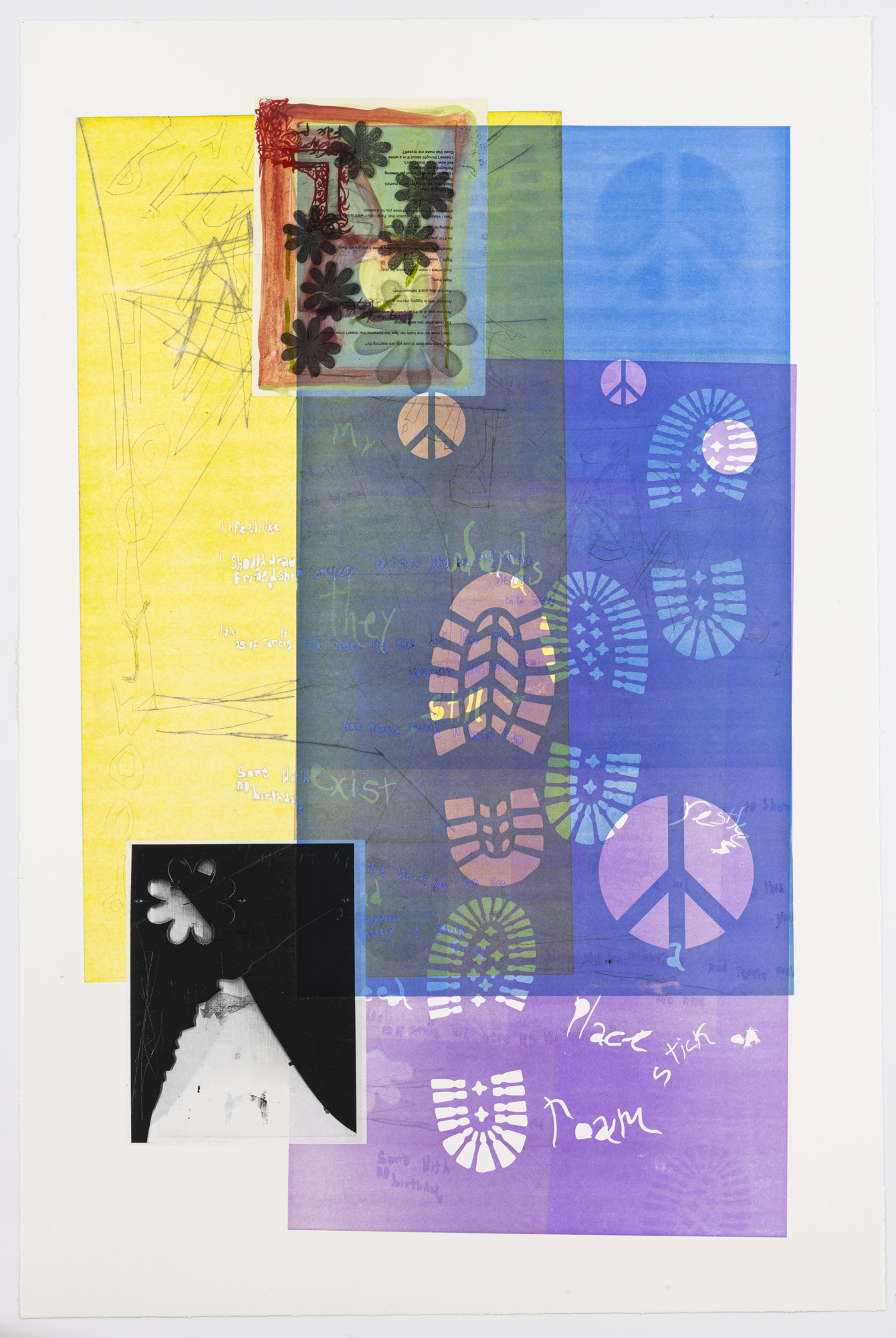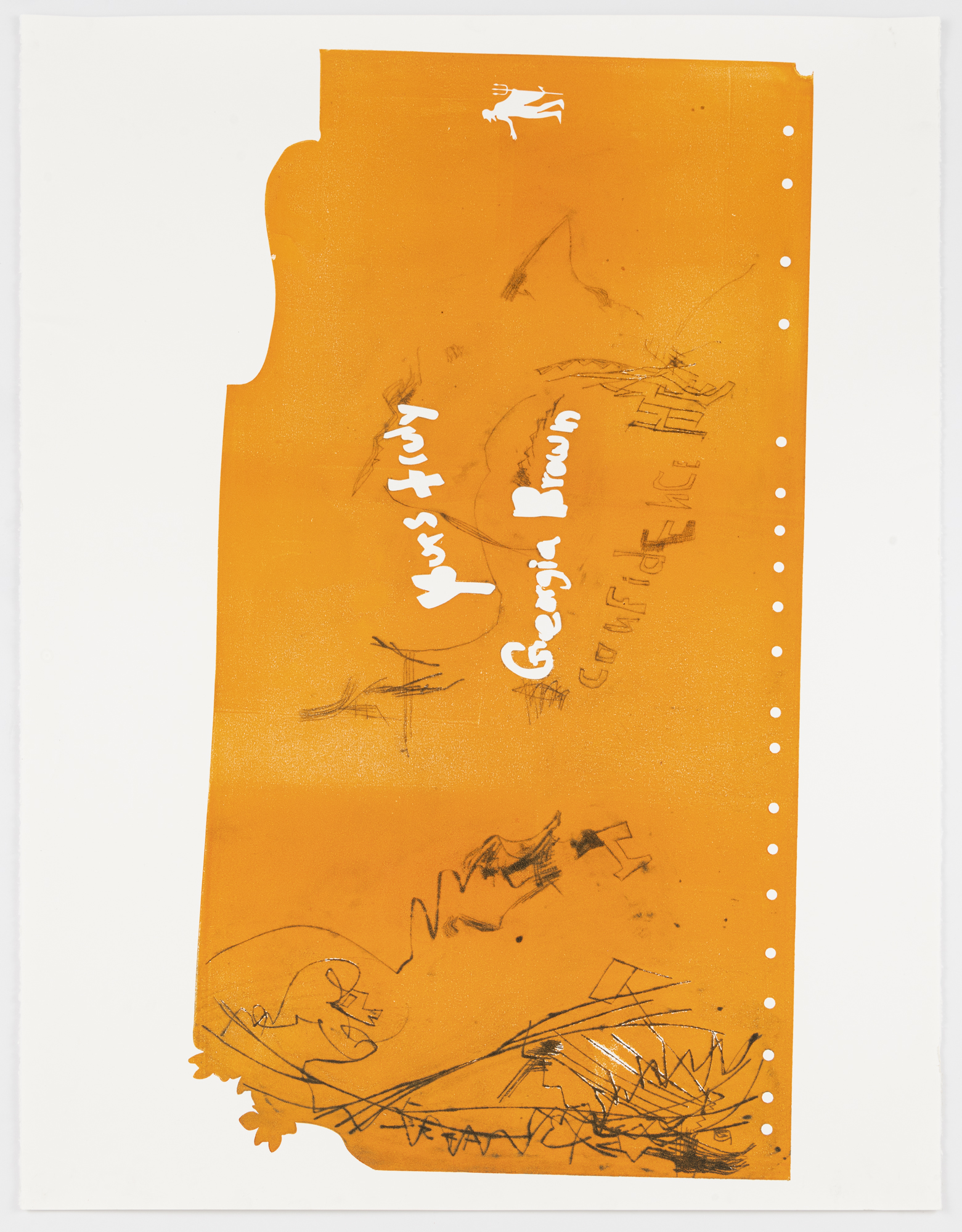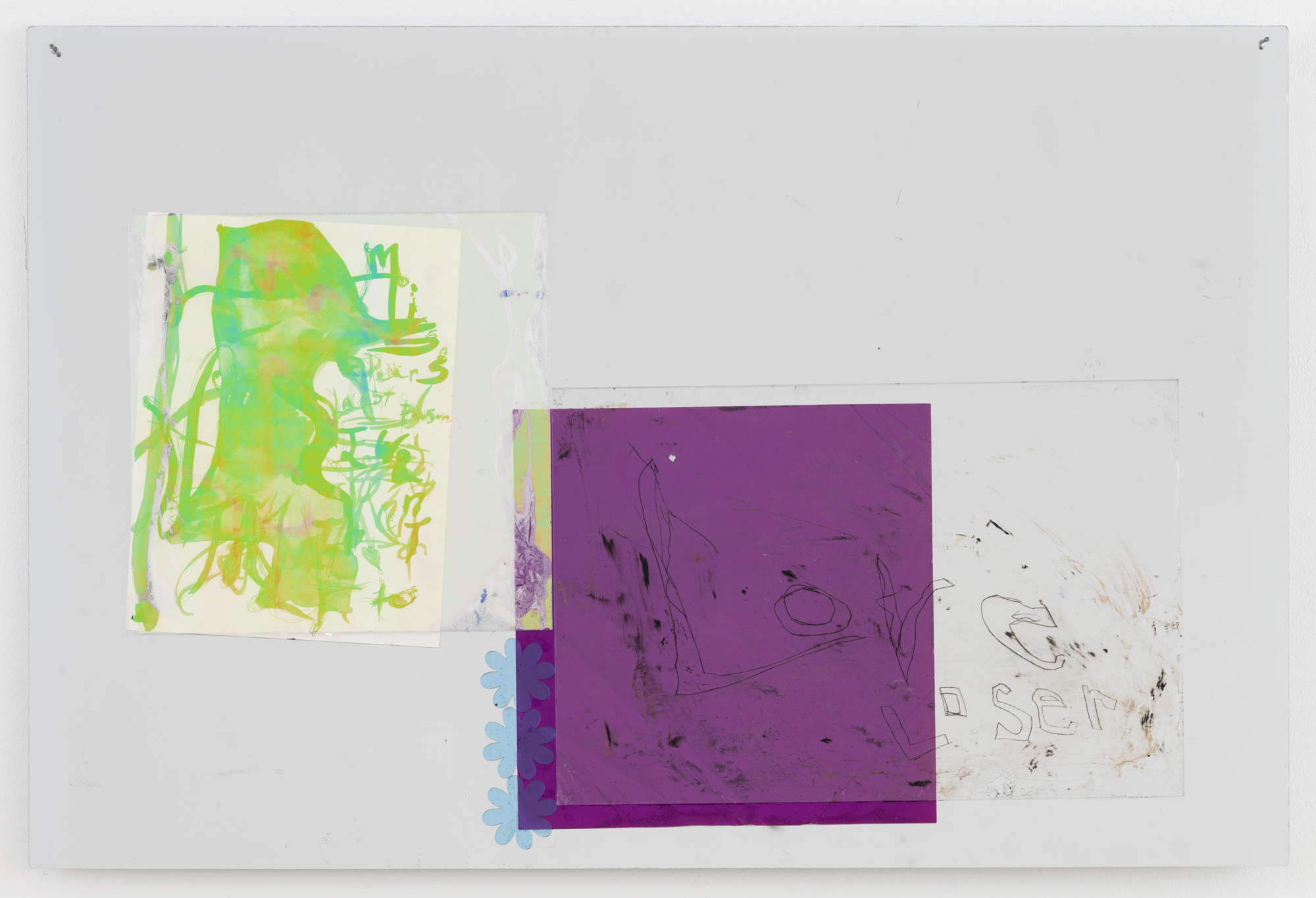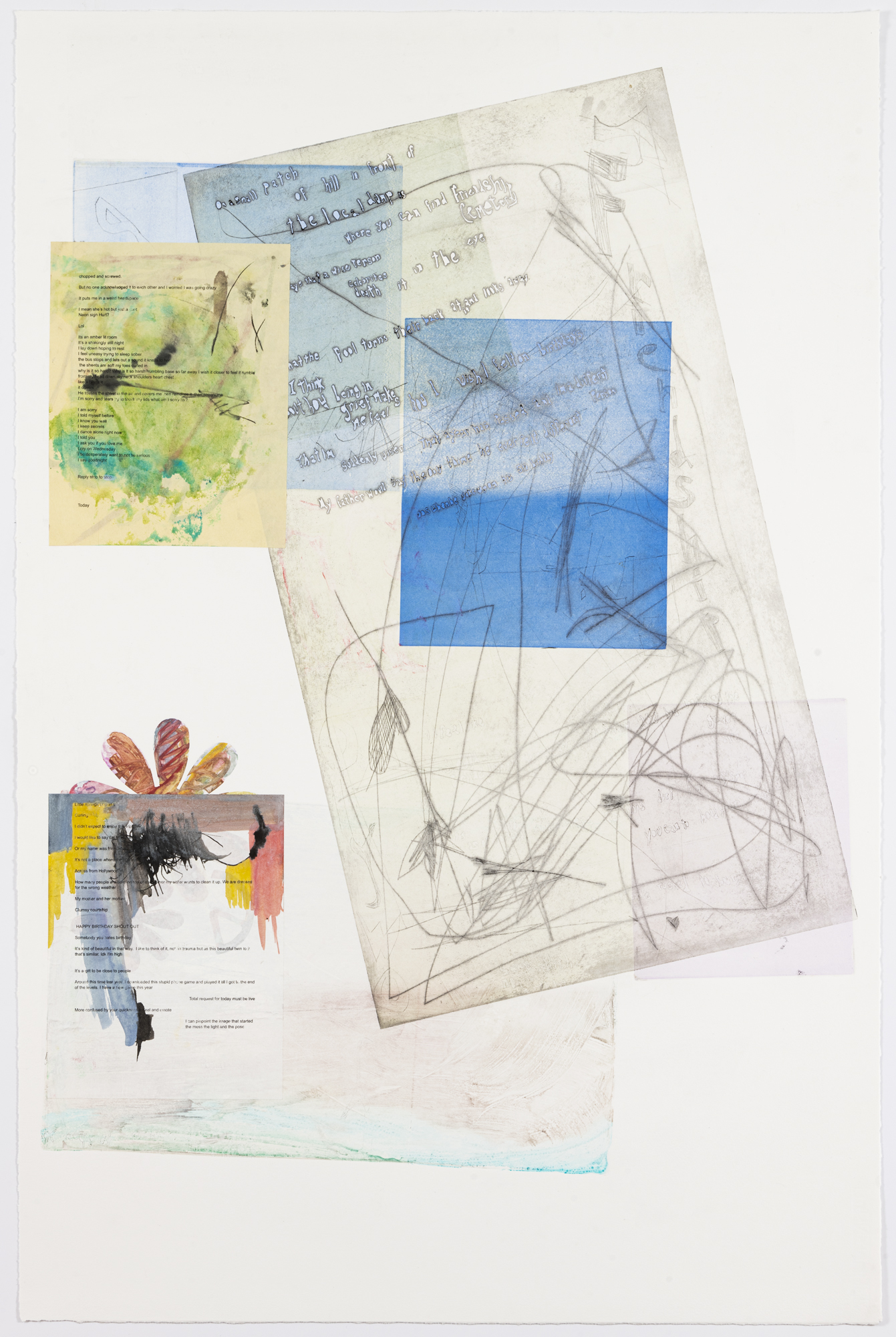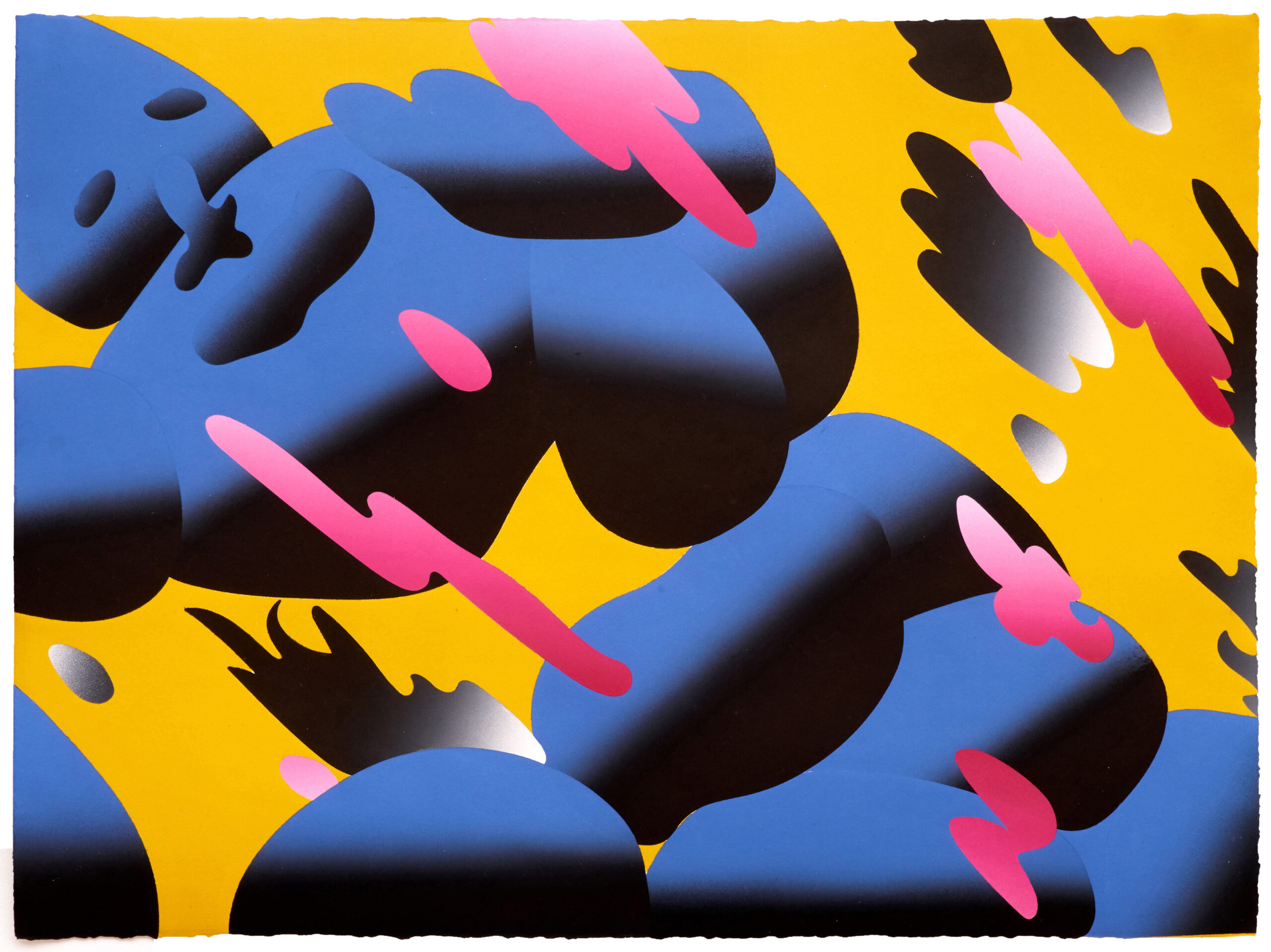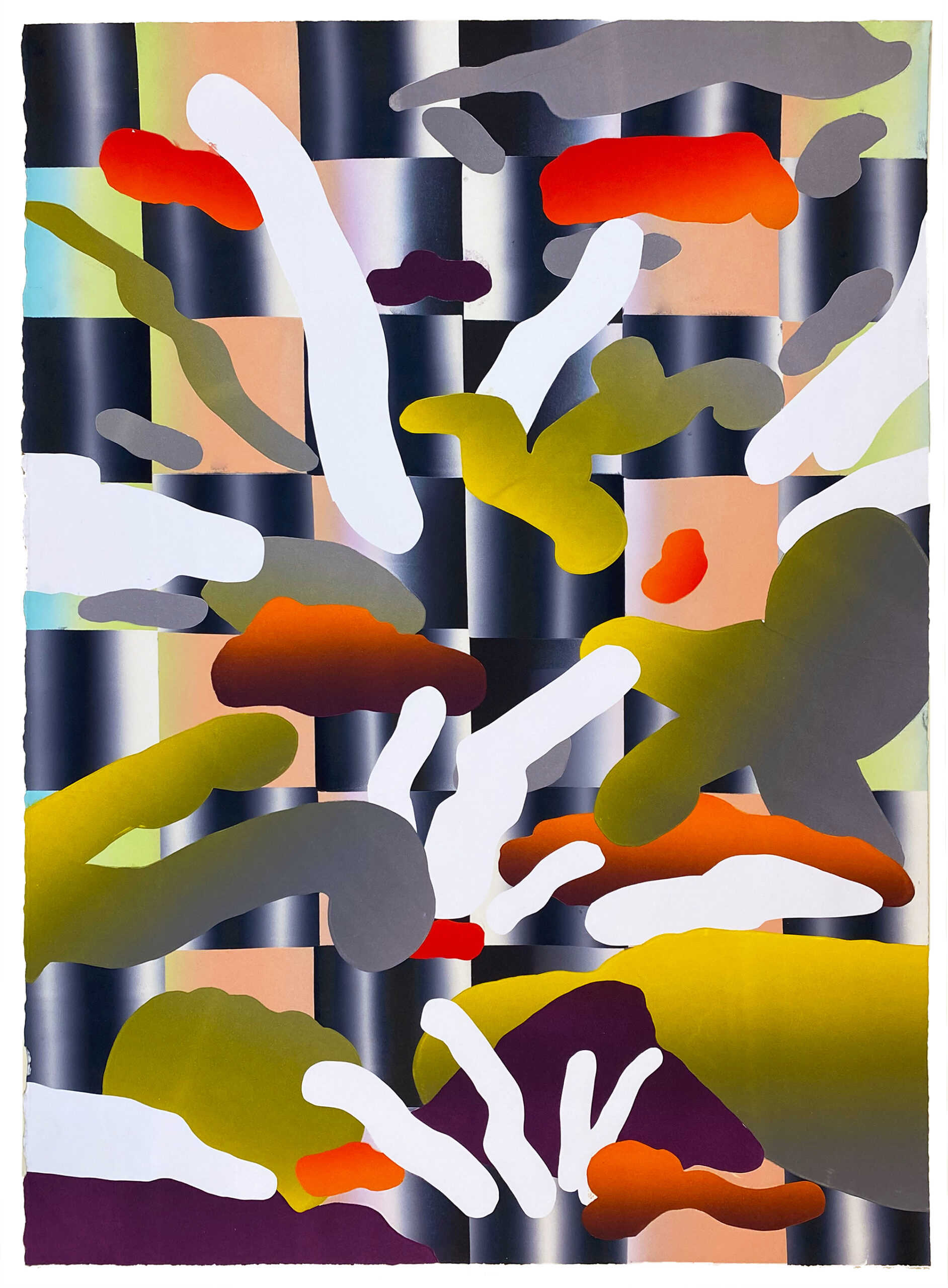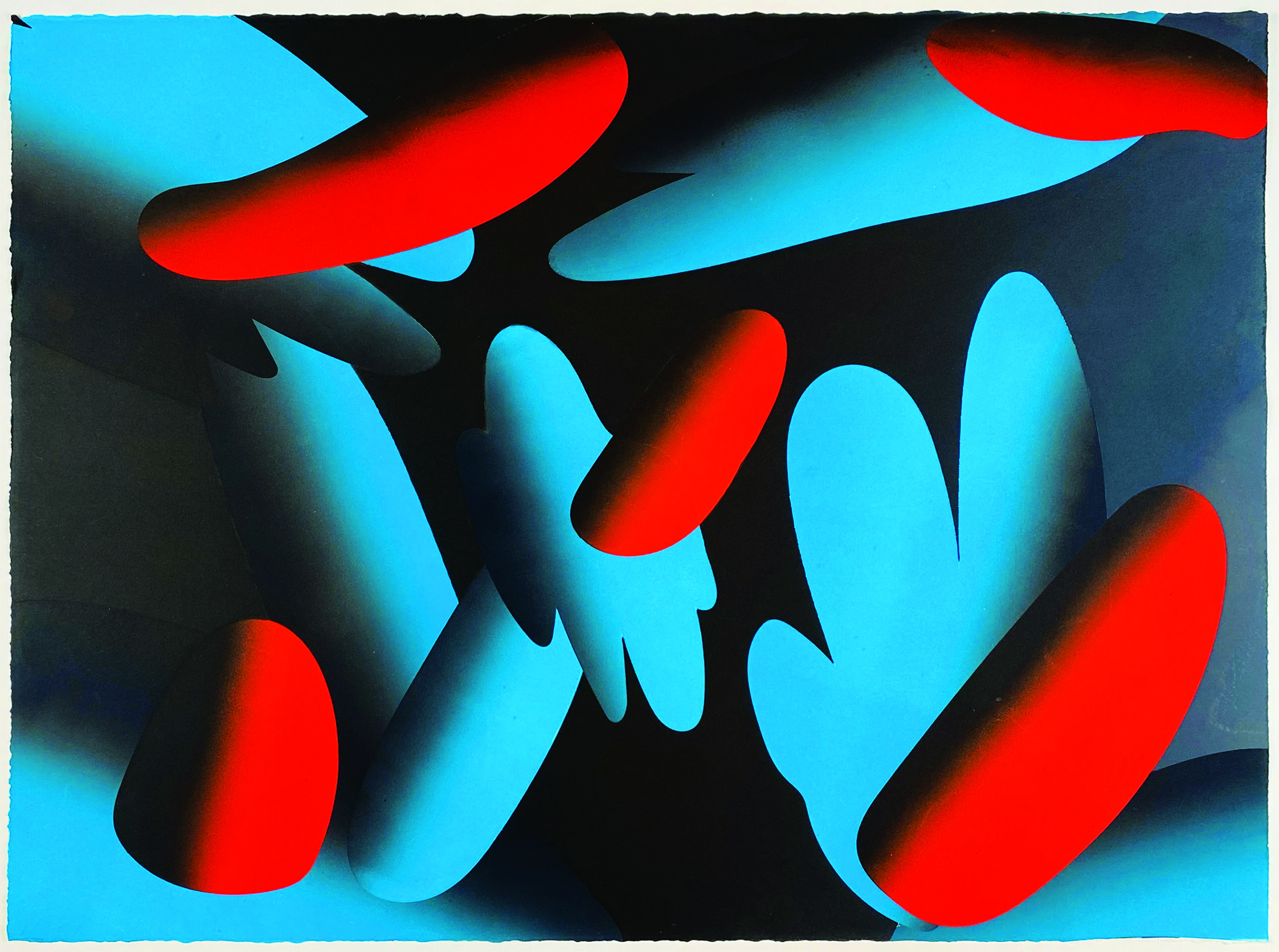Raque Ford: Where do I start?
and
Kat Richards: Shapes of Change
September 8 – November 11, 2023
The Print Center is pleased to present Raque Ford: Where do I start? and Kat Richards: Shapes of Change, two solo exhibitions in which the artists use the visual language of vivid abstraction to explore issues of identity, personal experience and the human body. The exhibitions are organized by guest curator Lauren Rosenblum, and Where do I start? is Ford’s first show in Philadelphia.
The Print Center is delighted to welcome guest curator Lauren Rosenblum, along with artists Raque (pronounced “Rocky”) Ford and Kat Richards. Both Rosenblum and Richards are former Philadelphians, and we are very pleased to bring Richards’ work back to our city. We are equally honored to introduce the exceptional work of Raque Ford. Both artists are working in the forefront of print and abstraction – forging new definitions in the field through innovative approaches.
– Elizabeth F. Spungen, Executive Director
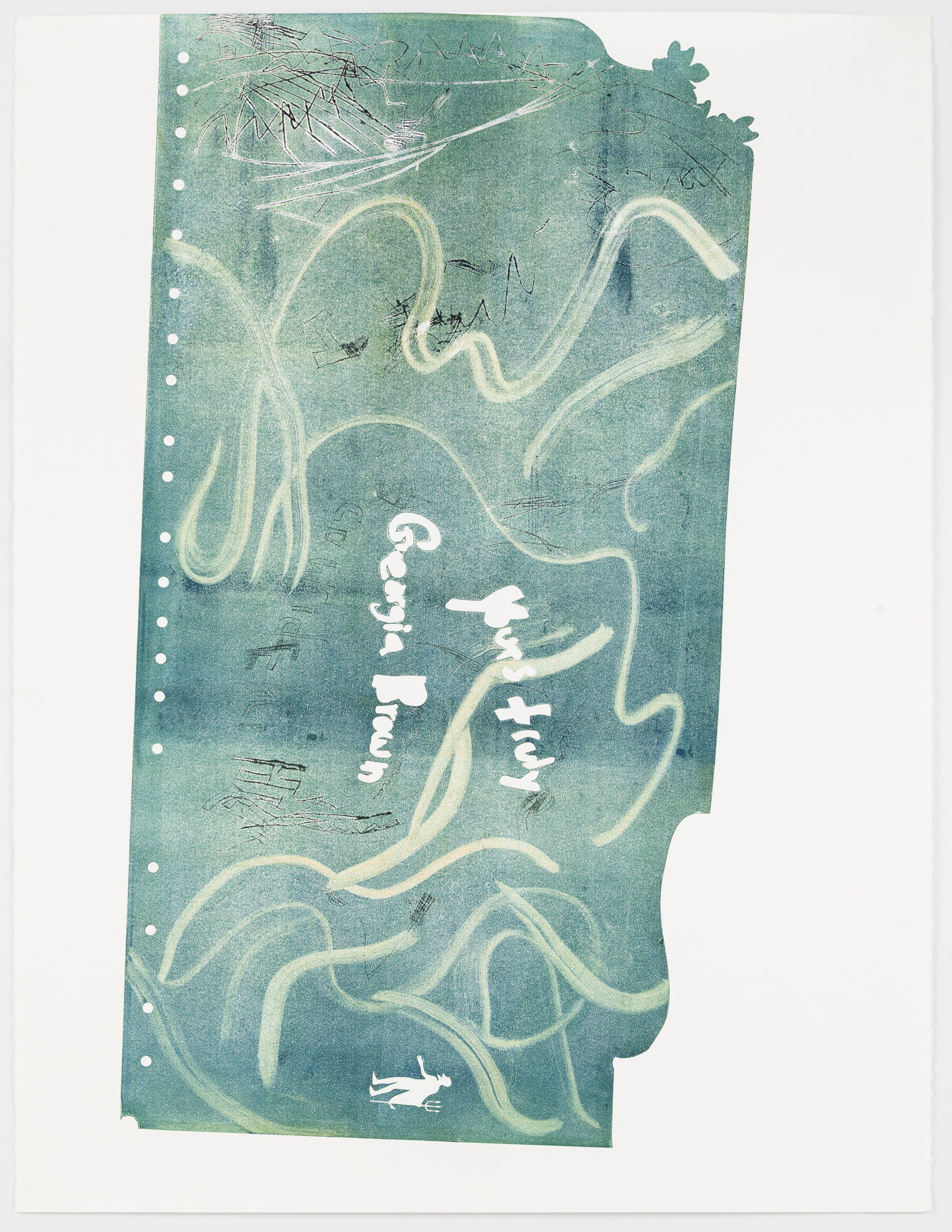
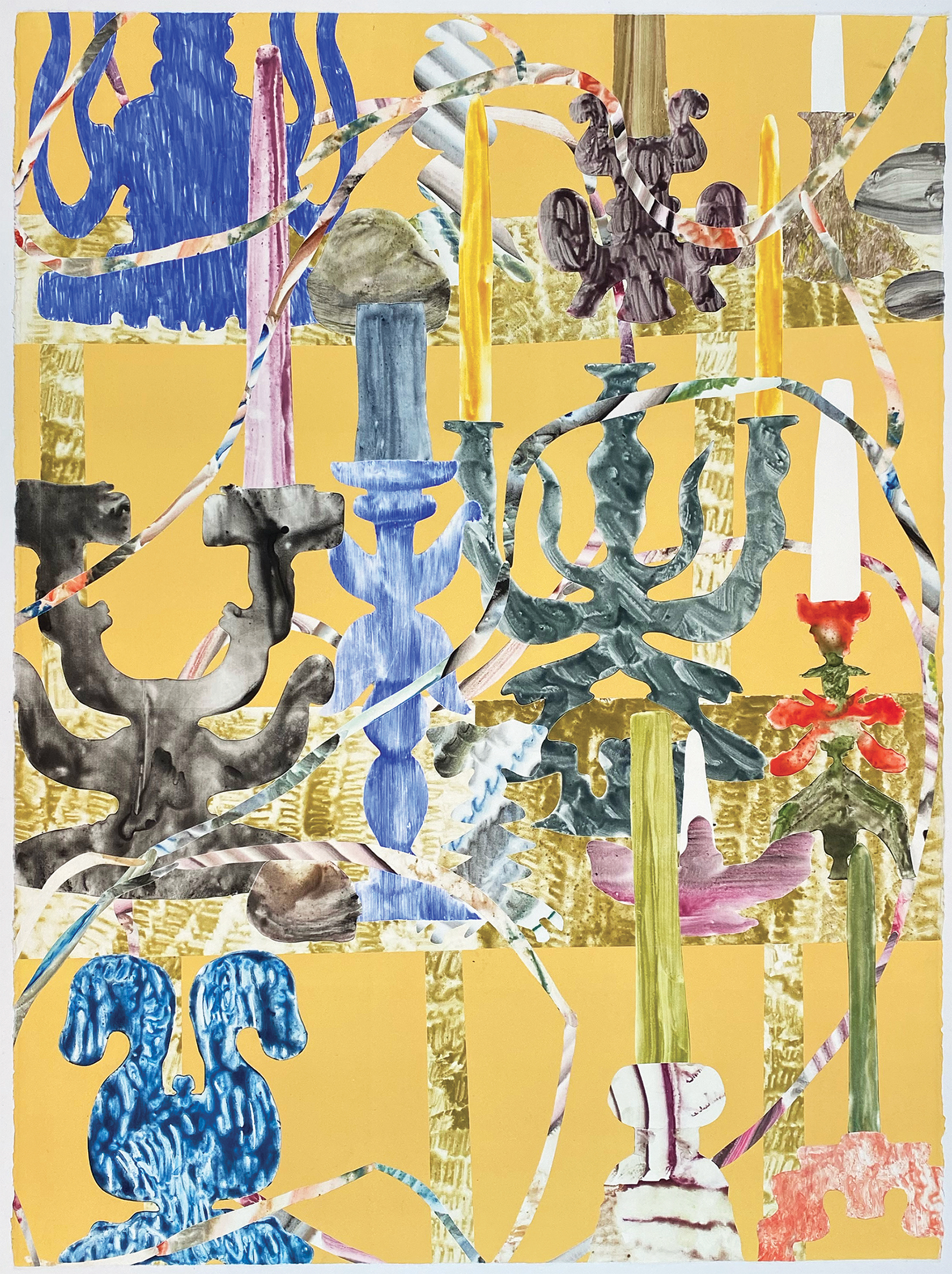
(left) Raque Ford, con•fi•dence 1, 2017, monoprint, 50” x 38 ½”. Courtesy of the Artist and Greene Naftali, New York. Photo: Zeshan Ahmed; (right) Kat Richards, Vigil I, 2023, monoprint, 30” x 22”. Courtesy of the Artist.
Programs
All of The Print Center’s exhibitions and programs are free and open to the public.
Gallery Talk + Opening Reception
Thursday, September 7
Gallery Talk, 5:30pm
With Raque Ford and guest curator Lauren Rosenblum
Opening Reception, 6 – 7:30pm
Conversation with Raque Ford
New date! Thursday, October 12, 6pm
In-person and on Zoom
Ford will be joined by Rosenblum and Justin Sanz, master printer, EFA Robert Blackburn Printmaking Workshop
Register for Zoom
Registration not required for in-person attendance
Artist Talk with Kat Richards
Thursday, November 9, 6pm
On Zoom
Richards will talk about their practice, career and the new works they created for the exhibition.
Register for Zoom
Raque Ford: Where do I start?
Where do I start? is a comprehensive exhibition of monoprints and sculpture by Brooklyn-based Raque Ford (she/her). This is her first institutional solo show and the first to highlight the artist’s innovative print works, showing her capacity to think about print in multiple dimensions.
Ford's prints and sculptures feature geometric forms, text and symbols that reveal how identity is crafted from scraps of popular culture. She juxtaposes icons of pop feminism, including peace signs, flowers, cherries and references to Beyoncé, with expressionistic gestures. Ford’s exploration of language is evident in the lines of text physically cut into the sculptures and layered in the prints. These snippets, culled from her own poetry and diaries, along with found texts, make reference to her experiences as a Black woman.
All of Ford’s monoprints were made at the EFA Robert Blackburn Printmaking Workshop in New York. In 2018, Ford enjoyed a fellowship there, designed to immerse artists in the world of printmaking which led to an ongoing collaboration with the studio’s master printer Justin Sanz. Ford’s growing interest in exploring the potential of printmaking is revealed in her creation of increasingly layered images and the use of more complex techniques, such as the addition of the drypoint etching process, which requires handincising and selective inking.
The exhibition's sculptures – both mounted on the wall and suspended from the ceiling – are made from various materials and colors of Plexiglas. Ford is drawn to the visual dynamism of the colorful acrylic to which she applies non-traditional marks such as the scuff of shoes made by dancing on it, or which she manipulates by cutting with a jigsaw to clear away space for lines of poetry or decorative elements. The sheets of Plexiglas are continually repurposed: moving from the floor to the wall, and from being the substrate (or matrix) from which to pull a print, into the actual artwork itself
Raque Ford (Brooklyn, NY) received a BFA from Pratt Institute, New York and an MFA from Rutgers Mason Gross School of the Arts, New Brunswick, NJ. Recent solo exhibitions include 321 Gallery, Brooklyn; Good Weather, Chicago, IL; Greene Naftali and Shoot the Lobster, both New York, NY; and CAPITAL, San Francisco, CA. Significant group shows include Albright Knox Gallery, Buffalo, NY; MoMA PS1, Long Island City, NY; and SculptureCenter, Queens, NY; as well as Morán Morán, Mexico City; Division Gallery, Montreal and Roberta Pelan, Toronto, both Canada. Ford’s work is in the collections of the High Museum of Art, Atlanta, GA and The Museum of Modern Art, New York, NY. Ford is represented by Greene Naftali Gallery.
Image courtesy of the Artist and Greene Naftali, New York. Photo: Curtis Wallen.
Kat Richards: Shapes of Change
Kat Richards’ (they/them) Shapes of Change presents large-scale, flamboyant monoprints of uncanny forms saturated with color, including three new prints made for this exhibition. The works serve as metaphors for an ever-changing human body and the solace we find in ritual. The work represents a fundamental aspect of the former Philadelphia-based artist’s ongoing exploration into the boundlessness of gender and queerness.
Some of Richards’ monoprints employ shape as metaphor for an ever-changing corporeal figure. The artist reconfigures the same shape to multiple ends; a form that suggests a leg or mouth can also represent a finger, nipple or foliage. In others, the abstract forms reference Richards’ experiences as a self-described Trans-Queer person, commemorating moments of celebration and recognizing these moments as inextricable from those of solemnity.
Richards utilizes a variety of techniques and tools from Photoshop, stenciling, rainbow rolls and handcutting to superimpose a digital visual language onto analog images. Their showcasing of distinctive color gradients retains the slight imperfections inevitable in handwork. Richards sees their use of print processes as an extension of their queerness, gender and body, analogizing the printing press as a theoretical, genderless prosthetic for reproduction, replacing the anatomical with its mechanical means.
My work is about queering the body, investigating new possibilities and different realities. Through a monoprint stencil technique, I reimagine the body by conceptualizing it in parts, using an index of abstract, fragmented shapes.
– Kat Richards
Kat Richards (Portland, OR) received a BFA from University Of Kansas, Lawrence and an MFA from Tyler School of Art and Architecture, Temple University, Philadelphia, PA. They have been included in recent exhibitions
at The Momentary, Bentonville, AK; Charlotte Street Foundation, Kansas City, MO; Ladies Room Gallery, Los Angeles, CA; 550 Gallery, New York, NY; and Mount Analogue Gallery, Seattle, WA. Richards has been a visiting artist and taught at institutions including the University of Arkansas, Fayetteville; University of Kansas, Lawrence; University of Nebraska-Lincoln; University of the Arts, Philadelphia; and Women’s Studio Workshop, Rosendale, NY. Richards was a Semifinalist in The Print Center’s 94th ANNUAL International Competition and is Assistant Professor of Art Practice in Printmaking at Portland State University School of Art and Design, Oregon. Richards is represented in The Print Center’s Gallery Store.Image courtesy of the Artist. Photo: Alec Logan Smith
About the EFA Robert Blackburn Printmaking Workshop
The Robert Blackburn Printmaking Workshop, a program of the Elizabeth Foundation for the Arts (EFA RBPMW), is the oldest and longest-running community printshop in the United States. A cooperative printmaking workspace that provides professional-quality facilities to artists of every skill level, EFA RBPMW is committed to inspiring and fostering its diverse artistic community. It is with this spirit of openness and inclusion that the vision of Robert Blackburn—the influential teacher, celebrated collaborator, and pioneering artist—is sustained in a welcoming, creative environment that continues to serve as the backbone of the workshop today.
